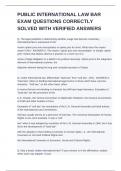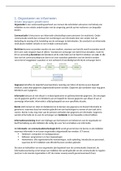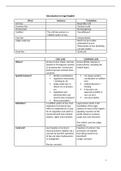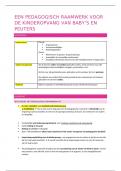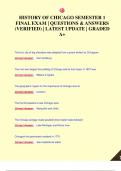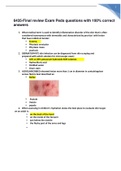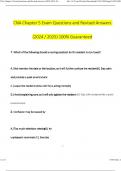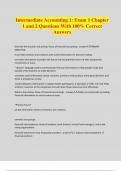Tentamen (uitwerkingen)
PUBLIC INTERNATIONAL LAW BAR EXAM QUESTIONS CORRECTLY SOLVED WITH VERIFIED ANSWERS
- Vak
- Instelling
Q. The legal yardstick in determining whether usage has become customary international law is expressed in the maxim opinio juris sive necessitates or opinio juris for short. What does the maxim mean? (3%) - ANSWER-A. The maxim "opinio juris sive necessitates" or simply "opinio juris" means that S...
[Meer zien]
